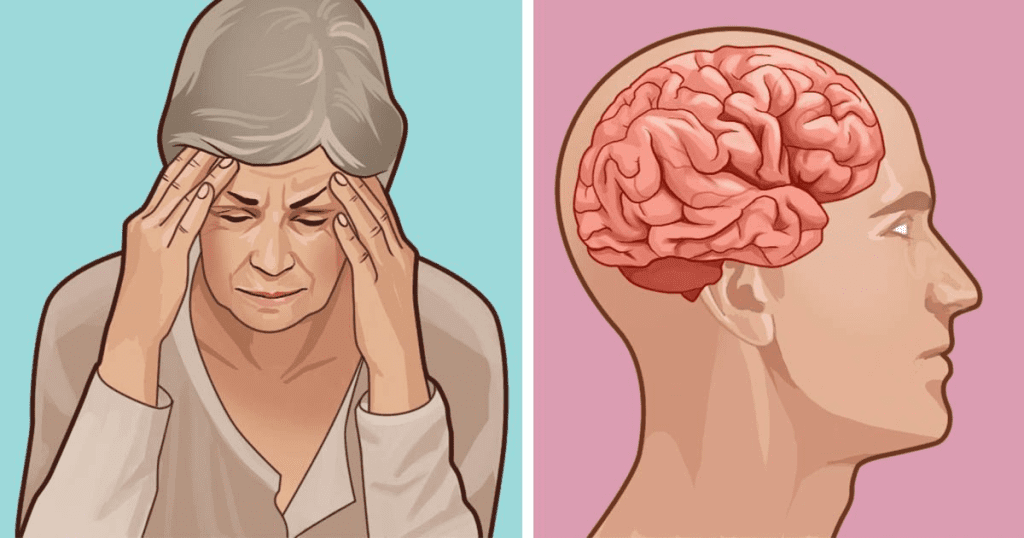Alzheimer’s disease is the most prevalent form of dementia, profoundly affecting memory, thinking, and behavior. While it’s most common among older adults, particularly those aged 65 and older, Alzheimer’s is not just a byproduct of aging. In fact, it’s a progressive brain disease that can even develop in younger adults, sometimes in their 40s or 50s. Despite years of research, Alzheimer’s remains without a cure, making it a crucial public health issue and the sixth leading cause of death in the United States.
What is Alzheimer’s Disease?

Alzheimer’s disease is a neurodegenerative condition that progressively destroys brain cells, leading to cognitive decline and severe memory loss. As it advances, Alzheimer’s impacts nearly all aspects of a person’s life, including their ability to think, make decisions, and perform everyday tasks. On average, individuals diagnosed with Alzheimer’s live about eight years following the onset of symptoms, but the progression can vary widely, with some living up to 20 years post-diagnosis.
Understanding the Causes of Alzheimer’s
While the exact cause of Alzheimer’s remains unknown, researchers have identified several contributing factors. A complex interplay of genetic, environmental, and lifestyle influences appears to contribute to the development of the disease. Here’s a breakdown of some of the potential causes and what we currently know:
- Genetic Factors: Certain genes, such as the APOE-e4 allele, are known to increase the risk of Alzheimer’s. However, having these genes doesn’t guarantee the disease.
- Environmental and Lifestyle Factors: Conditions like cardiovascular disease, diabetes, obesity, and lack of physical activity can contribute to Alzheimer’s risk. Additionally, factors like diet, education level, and engagement in mentally stimulating activities may also influence its onset.
- Brain Changes Over Time: Alzheimer’s is believed to begin with complex brain changes that occur years before symptoms become apparent. These changes cause abnormal proteins to form plaques and tangles, which disrupt communication between brain cells and eventually lead to cell death.
Recognizing the Warning Signs of Alzheimer’s
Alzheimer’s doesn’t appear suddenly. Its symptoms typically develop gradually and worsen over time. The Alzheimer’s Association has identified 10 common warning signs. Let’s take a closer look at these signs to help you recognize potential early symptoms:
- Memory Loss Disrupting Daily Life: Forgetting newly learned information or important dates is one of the earliest signs. This type of memory loss goes beyond occasional forgetfulness and begins to interfere with daily routines.
- Difficulty Planning or Solving Problems: Individuals may struggle with tasks that require concentration, like managing finances or following a familiar recipe. Challenges in problem-solving and decision-making are also common.
- Trouble Completing Familiar Tasks: Daily routines, whether at work or home, become challenging. A person with Alzheimer’s might find it difficult to complete everyday tasks, such as driving to familiar locations or remembering how to play a favorite game.
- Confusion with Time or Place: People with Alzheimer’s often lose track of dates, seasons, and the passage of time. They may forget where they are or how they got there.
- Changes in Vision and Spatial Awareness: Visual problems, such as trouble reading, judging distances, or differentiating colors, can occur. This can make activities like driving hazardous.
- Language and Communication Issues: Losing track of conversations, struggling with vocabulary, or frequently repeating oneself are common signs. Individuals may find it difficult to follow or participate in discussions.
- Misplacing Items and Losing the Ability to Retrace Steps: People with Alzheimer’s may put things in unusual places and lose objects often. Eventually, they may be unable to retrace their steps to find missing items.
- Poor Judgment: Alzheimer’s affects decision-making skills. Individuals may make poor financial choices, neglect grooming, or ignore safety protocols.
- Withdrawal from Work or Social Activities: Social isolation is common as individuals become aware of their declining abilities. They may withdraw from hobbies, work, or social gatherings due to embarrassment or confusion.
- Changes in Mood and Personality: Alzheimer’s can cause significant mood swings and behavioral changes, such as confusion, suspicion, depression, and anxiety. Individuals may become easily upset or frustrated, especially in unfamiliar environments.
Steps to Take If You Notice Symptoms

If you recognize these warning signs in yourself or a loved one, it’s crucial to consult a healthcare provider. Early detection of Alzheimer’s allows for more effective symptom management, planning, and access to resources and support services. The Alzheimer’s Association offers a checklist to help you discuss symptoms with your doctor and guide your next steps.
The Importance of Early Detection
While there is no cure for Alzheimer’s, an early diagnosis can make a significant difference. Here’s how early detection can benefit patients and their families:
- Maximize Treatment Options: Although current treatments can’t cure Alzheimer’s, they may help manage symptoms and improve quality of life.
- Future Planning: Early diagnosis enables individuals and their families to make informed decisions about future care, legal and financial matters, and living arrangements.
- Access to Clinical Trials: Participating in clinical trials provides access to emerging treatments and contributes to advancing research.
- Build a Support Network: Early detection allows families to establish relationships with healthcare providers, support groups, and Alzheimer’s organizations, helping them better navigate the challenges of the disease.
- Reduce Anxiety: Knowing the cause of symptoms can relieve uncertainty and allow patients and their families to adjust to the changes Alzheimer’s brings with greater clarity and preparedness.
Finding Resources and Support

Managing Alzheimer’s can be overwhelming, but numerous resources are available to help. The Alzheimer’s Association offers tools like the Alzheimer’s Navigator, which helps families develop action plans tailored to their needs. Additionally, local support groups, caregivers, and counseling services can provide comfort and guidance throughout the journey.
Conclusion
Alzheimer’s is a devastating disease, but recognizing the symptoms early and understanding its impact can make a profound difference in how families cope. While science continues to search for a cure, early diagnosis and proactive planning allow individuals to live meaningful lives even as the disease progresses. If you or someone you love is experiencing symptoms, don’t hesitate to seek medical advice and explore the resources available to support you along the way.


